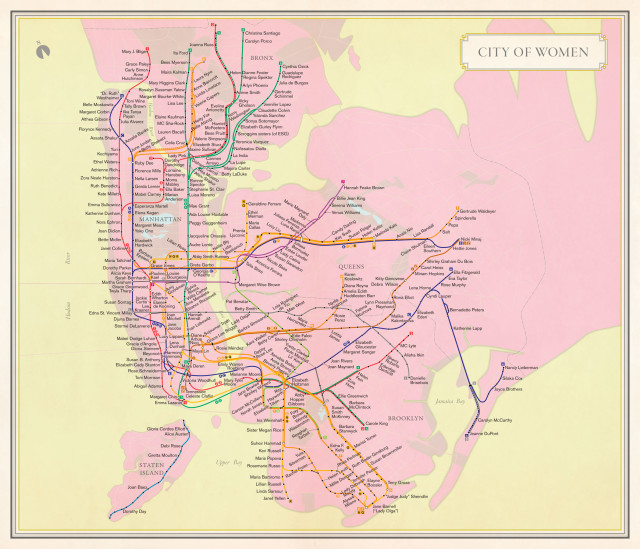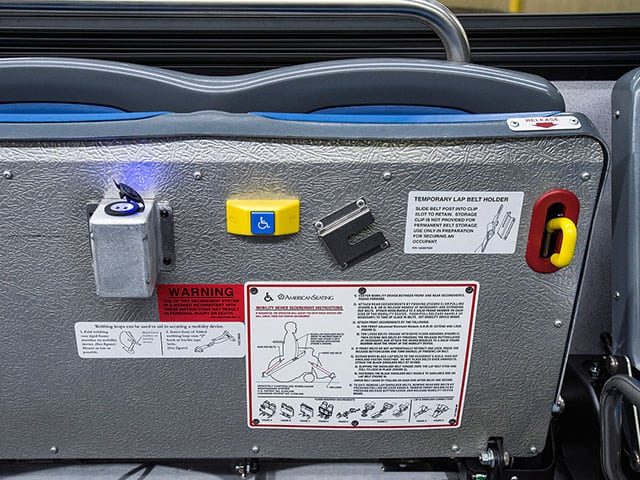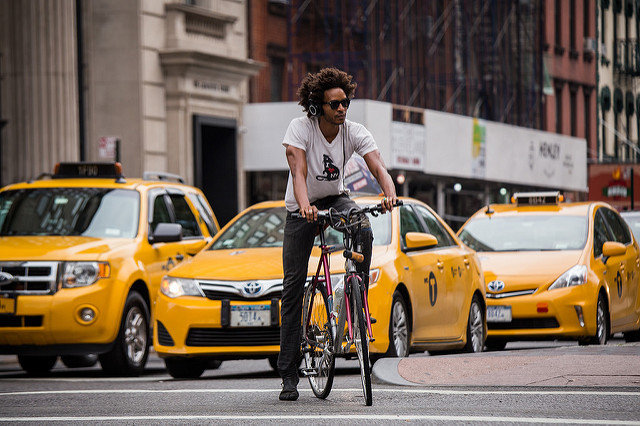
All of human history is blurred by the dominance of the male gaze, and New York City’s subway map is no exception. It’s another hammer from history that pounds its beat throughout time, reminding women, through hallowed names of streets and parks, that they were considered the “other” for so long. Imagine a world where we could start fresh and replace those men with the names of women who lived, taught and made history all across the city. This “City of Women” map on NewYorker.com today pictures just that, swapping men’s names on subway stops with the likes of Twyla Tharp, Susan Sontag, Sojourner Truth, Xenobia Bailey, Terry Gross and, of course, Beyoncé (click through to the New Yorker for a closer look at the map). Rebecca Solnit writes:
“[N]ames perpetuate the gendering of New York City. Almost every city is full of men’s names, names that are markers of who wielded power, who made history, who held fortunes, who was remembered; women are anonymous people who changed fathers’ names for husbands’ as they married, who lived in private and were comparatively forgotten, with few exceptions. This naming stretches across the continent; the peaks of many Western mountains have names that make the ranges sound like the board of directors of an old corporation, and very little has been named for particular historical women, though Maryland was named after a Queen Mary who never got there.”
The “City of Women” map appears in the book Nonstop Metropolis, a “creative atlas of New York City,” due out on Oct. 19, that Solnit co-authored with Joshua Jelly-Schapiro. Solnit writes:
“[W]e tried on what it would look like to live in such power, by paying homage to some of the great and significant women of New York City in the places where they lived, worked, competed, went to school, danced, painted, wrote, rebelled, organized, philosophized, taught, and made names for themselves. The New York City subway map is the one map that nearly everyone in the city consults constantly; it is posted at nearly every station entry and on every platform and subway car. The station names are a network of numbers and mostly men’s names and descriptives, but the map is an informational scaffolding on which other things can be built. So on it we have built a feminist city of sorts, a map to a renamed city.”
It’s no Man Tax, but a map like this just might go a long way to reminding people that women have been part of the city’s development throughout time.
Read more here.
One Response to
Leave a Reply




WHY IS IT PINK YOU DON’T HAVE TO MAKE THINGS PINK FOR WOMEN UGH